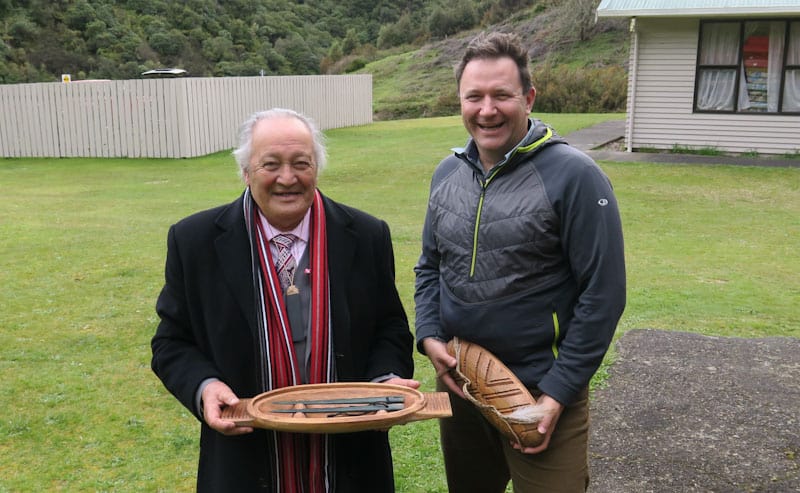His retirement signals an end to the huge contribution Tahae has made to scientific research over the past 20 years – both with Manaaki Whenua and more recently the BioHeritage Challenge.
Tahae informed national perspectives through his role on the Environmental Protection Authority’s Ngā Kaihautū Tikanga Taiao. He also made international contributions through the IPBES Indigenous and Local Knowledge workshop for the Thematic Assessment for Pollinators, Pollination and Food Production.
Tahae has been a huge advocate for the importance, relevance and inclusion of mātauranga in all biodiversity research and environmental decision-making.
About 60 people joined the celebration, which was held by the Tūhoe Tuawhenua Trust at Papueru Marae in Ruatāhuna. Attendees included representatives from the BioHeritage Challenge, Manaaki Whenua – Landcare Research, Environmental Protection Authority, Ngā Whenua Rāhui, the Kaingaroa Village Committee, and the Ruatāhuna, Waikaremoana and Ngāti Hine communities.
On behalf of BioHeritage and Manaaki Whenua, researcher Dr Phil Lyver joined the well-wishers to gift Tahae two tara pounamu (greenstone spear head for harvesting kererū), which he co-designed with master carvers Pierre Tumahai and Des Herrington from Waewae Pounamu in Hokitika.
“The tara has relevance as a gift because the saddle behind Tahae’s house at Ngāputahi is called Tarapounamu. The ridge got its name from a tīpuna (ancestor) who speared a kererū there with a tarapounamu, and the tip of the tara broke away from the tao (spear pole). The story that accompanies that history has special significance to the Tuawhenua people.
“We hope the tara will be put to good use someday as the Tuawhenua Trust works towards being able to take a customary harvest of kererū one day in the future,” Phil says.
